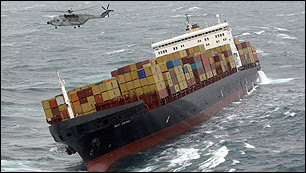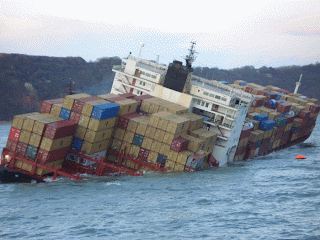One sinking ship…one concerned commodities market

The recent grounding of the container vessel MSC Napoli off the southern coast of Devon, England, received some media attention of late. Initially, reports centered on the threat of an oil spill impacting on the coastline. Then came the somewhat amusing tales of scavengers making off with the contents of containers that had washed ashore, a real-life take on the old British film Whisky Galore! (released in 1949 as Tight Little Island in the U.S.).
But notwithstanding the humorous reports of locals finding booty from the sea, the MSC Napoli’s accident has also served as a reminder of the impact just one commercial vessel can have on global economies. When the British-flagged vessel was deliberately grounded by her captain on a reef after being damaged in a storm – run onto the rocks to prevent her sinking – she also set in motion a series of evens among commodity traders.
The 900-foot long MSC Napoli was bound for Durban, South Africa, from Antwerp when she was holed in her starboard side during a storm late last week. The ship had, among her 2400 containers, more than 1000 tonnes of nickel. This vital metal is a key ingredient in the production of stainless steel, and the amount aboard the MSC Napoli represents almost 20 percent of the worldwide nickel inventories monitored by the London Metal Exchange. Those inventories add up to a little more than 5000 tonnes of nickel, or less than two days of worldwide consumption of the metal.
As a direct result of the grounding of MSC Napoli, the price of nickel on the London Metal Exchange hit $38,300 USD on Tuesday (January 23), A few days earlier, nickel had been trading at $36,100 USD a tonne. (The price increase was also influenced by the threat of a strike by nickel miners in Canada.)
All crew members of the vessel were safely rescued from the stricken vessel and, to date, the environmental impact has been limited.


